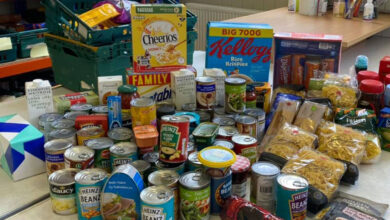
Effects of COVID-19 on Animals
There is no evidence to date that domestic livestock and most pets can be infected with or transmit COVID-19; however, this has also not been ruled out. There have been recent reports that cats and ferrets may be susceptible to infection, as well as limited reports of cats with mild clinical signs, but there is no evidence that the disease can spread from cats or ferrets back to humans. Anyone who has COVID-19 should avoid contact with animals, just as they should with people, until more information is available. If there is already an animal in the household, that animal should remain in isolation along with the patient.
The Canadian Veterinary Medical Association has released the following statement regarding anyone who has COVID-19 and pets:
- Avoid close contact with them – Do not snuggle or kiss them, let them lick you, sit on your lap, or sleep in your bed
- Practise good cough etiquette – Avoid coughing or sneezing on your animals
- Have another member of your household care for your animals
- Always wash your hands before touching or feeding your animals
- Limit your animal’s contact with other people and animals – This may mean keeping them indoors
An additional risk to animals is what will happen to them if their owners become ill and are unable to take care of them. In these situations, humane societies, boarding kennels and veterinary clinics may not be willing to care for your pet due to the uncertainty around animals and COVID-19. You can help reduce these concerns by planning for your pet’s care in advance. This includes identifying a family member or friend who will care for your animals if you become ill or are hospitalized. Animal owners should also keep crates, food, and extra supplies on hand in case you are required to stay home for an extended period of time. As always, help protect your animals by making sure all vaccinations are up to date and that pets have a collar and identification tag. This will help ensure your pet is returned home safely, should it need to be moved from your home because you are unable to care for it yourself.
Livestock and poultry producers have similar concerns about caring for their animals if they or their staff become ill. Producers should be having discussions with their families and employees about who can help care for the animals should someone become ill. Producers should also arrange alternatives for animal care when employees are sick or required to self-isolate for a period of time. Planning should include identifying the minimum level of care that is necessary to maintain the health and welfare of the animals, and making arrangements in advance with friends, family or neighbours for getting a “helping hand” when needed.
For the latest information and for more updates on everything Kindersley ‘Like’ the Kindersley Social Facebook page below…








































